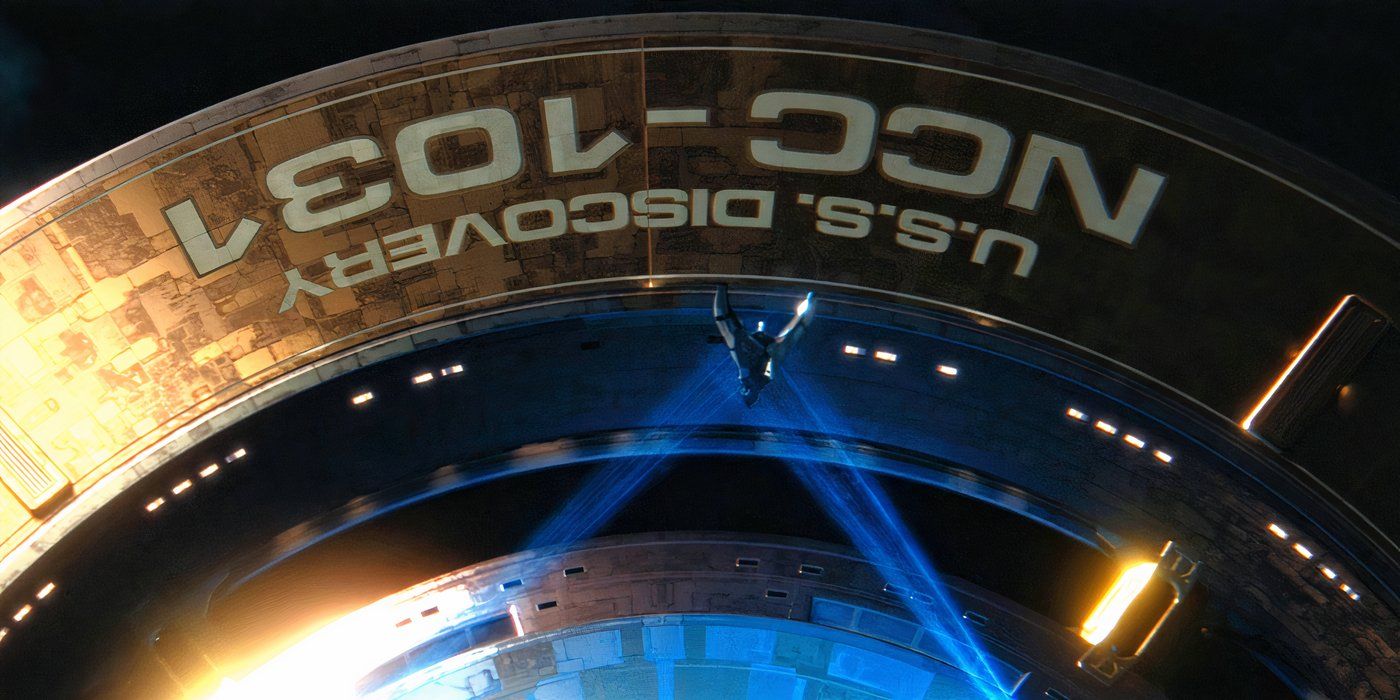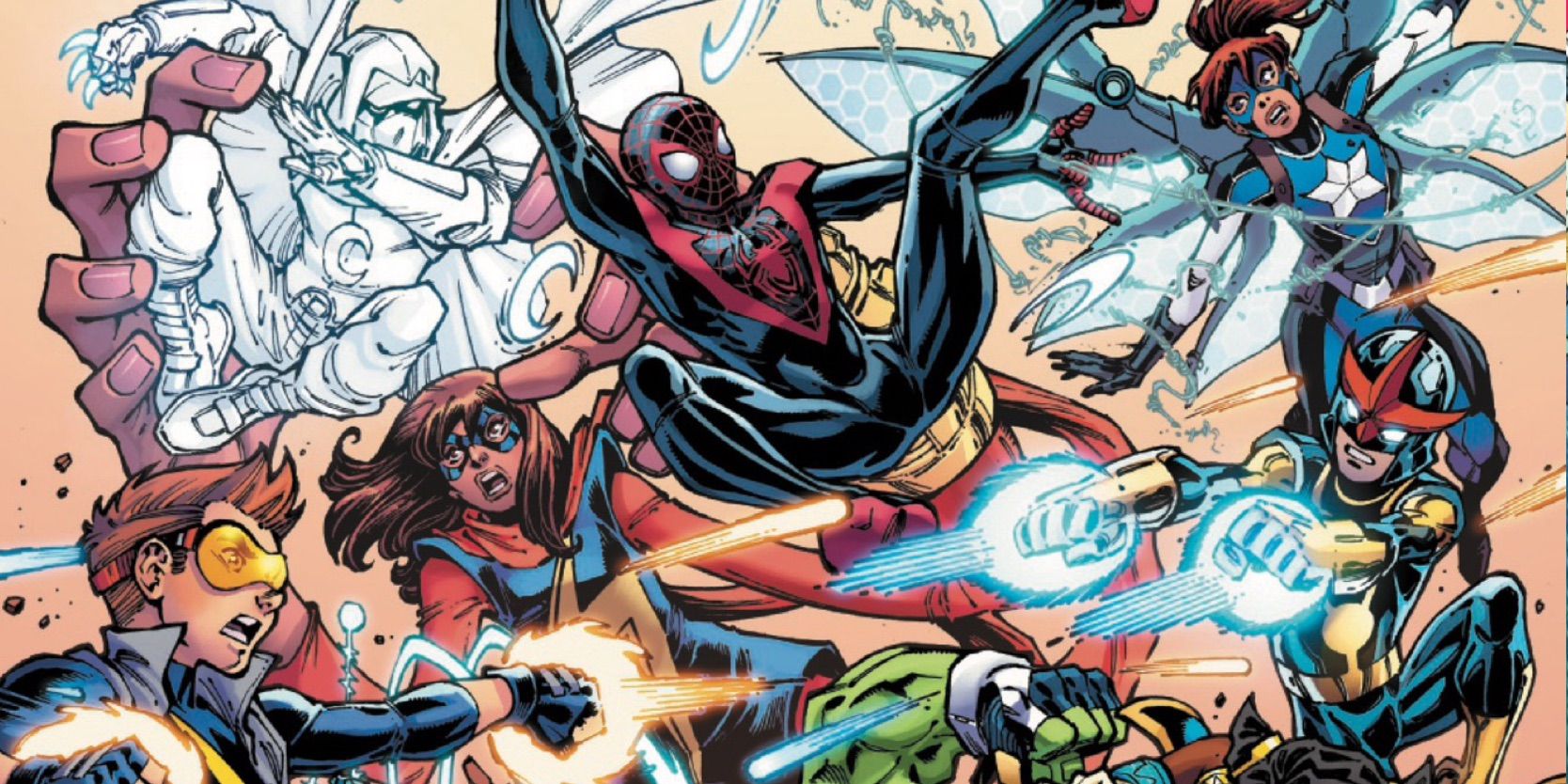Star Trek: Discovery's Ending Finally Makes "Calypso" Matter After 6 Years
WARNING: Contains SPOILERS for Star Trek: Discovery's Series Finale, "Life, Itself"
Summary Star Trek: Discovery's series finale ties directly to Short Treks episode "Calypso" after 6 years, making Zora's future a crucial mission.
Zora's final mission in the 42nd century echoes Captain Burnham's legacy of connection, proving the importance of "Calypso" in Discovery's future.
Craft and Zora's encounter may lead to enduring peace in the 42nd century, showing the ripple effect of love and Federation-inspired connections.
The series finale of Star Trek: Discovery, "Life, Itself", finally makes Star Trek: Short Treks season 1, episode 2, "Calypso", matter 6 years after its initial release. Written by Kyle Jarrow and Michelle Paradise, and directed by Olatunde Osunsanmi, Star Trek: Discovery's series finale, includes an epilogue set decades after the primary events of Star Trek: Discovery season 5. Admiral Michael Burnham (Sonequa Martin-Green) commands the final mission of the USS Discovery's sentient computer, Zora (Annabelle Wallis). Zora's mission is classified, but Burnham's instructions to wait and the code word "Craft" directly reference the enigmatic Short Treks episode "Calypso", which raised several questions about Discovery's ultimate fate.
Streaming just prior to the release of Star Trek: Discovery season 2, Short Treks season 1, episode 2, "Calypso", features disillusioned soldier Craft (Aldis Hodge) and Zora, who wouldn't exist until Discovery season 3, falling in love 1000 years in the future. "Calypso" hinted at Discovery season 2's time travel and A.I. themes, but was otherwise disconnected from Star Trek canon. Discovery season 3's forward time jump seemed to indicate that "Calypso" would remain a standalone story that glimpsed a Star Trek timeline that could have been, but would never happen, due to Discovery's writers changing course. Surprisingly, Star Trek: Discovery's series finale made it work.
Related Star Trek: Discovery’s “Calypso” Short Trek & Finale Epilogue Reveal Explained Star Trek: Discovery's series finale epilogue puts the pieces in place for Star Trek: Short Treks "Calypso" to happen in the future.
"Calypso" Short Trek Finally Makes Sense In Star Trek: Discovery's Finale
Zora's Future After Star Trek: Discovery Was Inevitable
Star Trek: Discovery finally makes "Calypso" make sense, after the Star Trek: Short Treks episode seemed to be forgotten, by tying Discovery's series finale epilogue directly to Zora's future. Zora's existence in Star Trek: Discovery season 3 indicates that "Calypso" is genuinely in Discovery's future, especially with storylines confirming Zora's personhood that echo Craft's eventual belief, but after Discovery season 3, the loose thread dangles over Star Trek: Discovery, begging to be picked up. Speaking on The Ready Room, Star Trek: Discovery showrunner Michelle Paradise explains working with executive producer Alex Kurtzmann to include the "Calypso" connection in Discovery's finale:
"That was something that Alex and I had talked about for quite some time. I wasn't actually on the show when they did the "Calypso" short. He always felt -- and I did too, once I came on board -- that you have to make that connection. You can't leave the hanging threads on a show like this. And so when we were able to come back and do the coda, it was 100% we have to find a way to tie it in."
The USS Discovery's time of active service is at an end, but Zora is both sentient and inextricable from Discovery's computer, so she can't be decommissioned in a conventional way. Instead, Zora is assigned the unique mission of ensuring that the events of "Calypso" come to pass in a thousand years' time, in a Red Directive mission from time agent Dr. Kovich (David Cronenberg), who knows what must happen in the future. Because Zora was part of the Sphere data for 100,000 years before being integrated with the USS Discovery, 1000 years is only a fraction of Zora's potentially immortal existence, making Zora the perfect agent for this mission.
In the Star Trek: Discovery series finale epilogue, the USS Discovery is retrofitted back into its original 23rd century design, with reattached warp nacelles and the "A" scrubbed from the registry number on Discovery's hull, to match Discovery's appearance in "Calypso".
Why Zora's Final Star Trek: Discovery Mission Is So Important
Zora Continues Captain Burnham's Legacy In Discovery's Future
Close
Instead of leaving the Star Trek: Short Treks episode "Calypso" behind as an artifact of a forgotten timeline, Star Trek: Discovery ensures that "Calypso" remains part of Star Trek's future, so there must be an important reason for Zora's final Star Trek: Discovery mission. Captain Burnham was able to rebuild a broken 32nd century Federation with 23rd century ideals that prove to the post-Burn galaxy that connection was possible. Zora's mission in the 42nd century is like Burnham's in the 32nd, because Craft's enemies in the war are the V'draysh, formerly known as the Federation, and Zora, like Burnham, is a Federation citizen from another time capable of showing Craft kindness.
In Star Trek: Discovery season 5, episode 4, "Face the Strange", Captain Burnham and Commander Rayner (Callum Keith Rennie) find Zora playing archived 20th century music after the USS Discovery has been abandoned in an alternate future timeline, just as Zora does in Star Trek: Short Treks "Calypso".
The encounter between Zora and Craft may be a necessary flap of butterfly wings that leads to enduring peace or a rebuilt Federation in the 42nd century. Zora's highest objective in Star Trek: Discovery is protecting the USS Discovery crew. Craft becomes Discovery's sole crew member, so Zora protects Craft, reminding Craft of what love is. With a healed heart, Craft departs to return to the wife and child that Craft has been away from for ten years, and brings the soft light of Zora's Federation-inspired connections back to his people. With that inevitable ripple effect, Star Trek: Discovery finally makes Star Trek: Short Treks "Calypso" matter.











COMMENTS